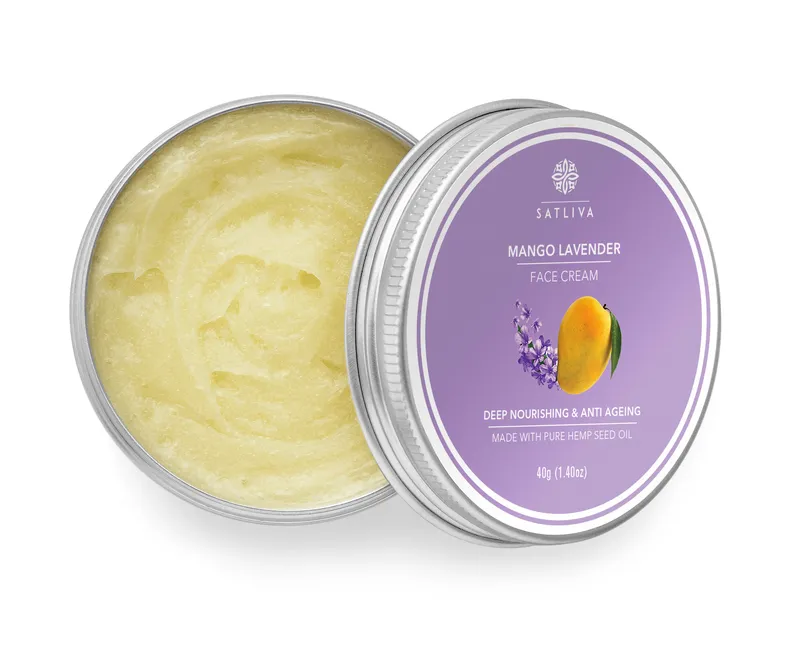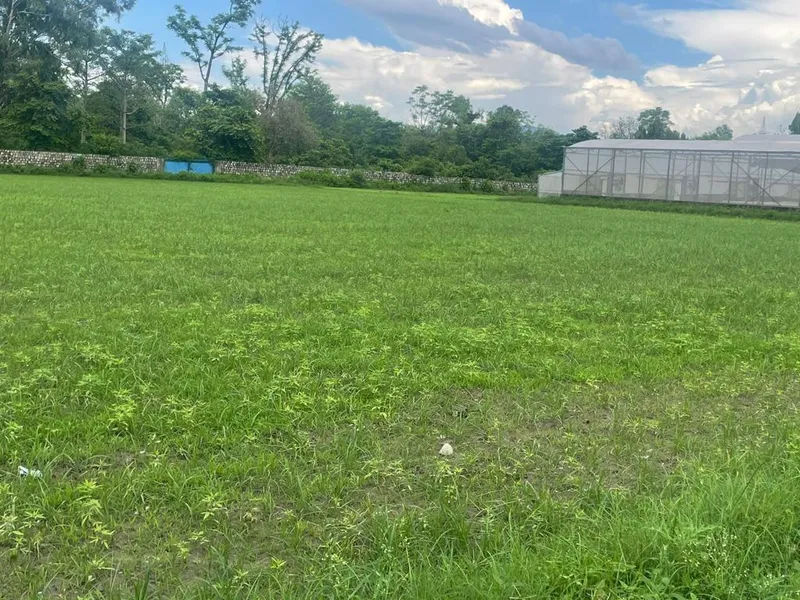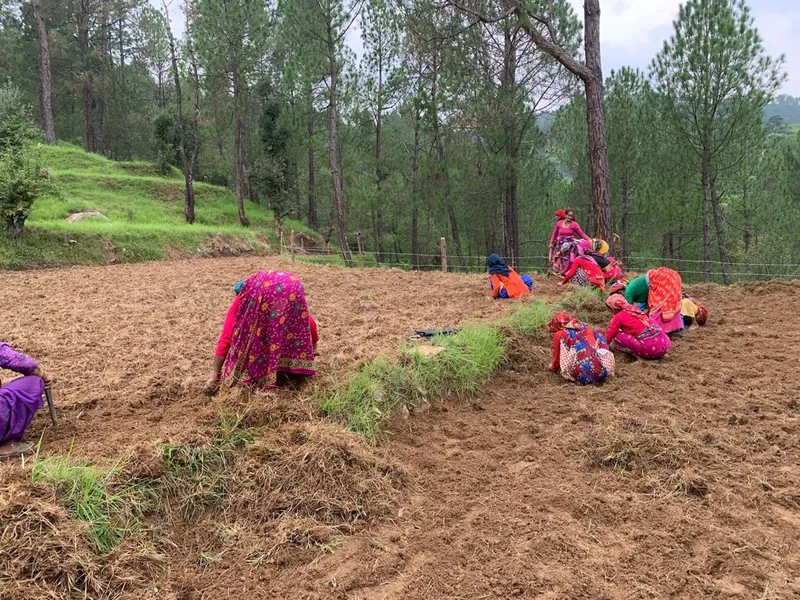Namrata HempCo making a dent in bioplastic sector with hemp at its core
After six years in the skincare business, Namrata HempCo is now expanding its operations in fibre and bioplastic manufacturing. Here’s how it aims to grow.
The misconceptions about hemp and marijuana have grappled Indian consumers for a long time. Derived from the same Cannabis sativa plant, they are still poles apart.
Both contain THC (tetrahydrocannabinol—the psychoactive element that gives you a ‘high’) and CBD (cannabidiol—a beneficial oil extracted from the leaves, stems, and flowers of the plant).
In India, Uttarakhand is the only state to grow industrial hemp plants at a commercial scale. They are CBD-rich, and the THC content of their extracts is often less than 0.3%.
Nonetheless, the hemp industry is yet to make a dent in the Indian economy as myths and stringent government regulations surround hemp cultivation.
Despite the hurdles, Bengaluru-based Namrata HempCo, which operates a skincare brand Satliva and a bioplastic manufacturing company called GreenLeaf Bioplastics, is trying to change the narrative.
Founded in 2016 by husband-wife duo Namrata Reddy and Harshavardhan Reddy, realising the plant's potential in other areas besides skincare, the company is now expanding into fibre and bioplastic manufacturing.
“We are heavily focused on the development of industrial hemp. We want to build the entire hemp ecosystem,” says Harshavardhan, Founder of .
Business journey with Satliva
In 2006, after completing his MBA from New York’s Dowling College, Harshavardhan worked as a strategy consultant.
It enabled him to interact with a UK-based pharmaceutical company working on stem cell-based cancer vaccines. Here, he got introduced to hemp in 2009-10.
However, it was the founders’ newborn son’s hepatitis diagnosis in 2011 that made them think about hemp products more closely. The doctors prescribed infrared radiation treatment, which caused more harm to their son’s skin.
When nothing worked, Namrata suggested they try hemp seed oil for treatment. “It showed good results in six months, and the skin healed completely,” says Harshavardhan.
A year later, they collaborated with doctors to formulate and launch products based on hemp seed oil. “Supply chain was a big issue. Seeds were not available. We collected in minuscule quantities from different sources,” he recalls, adding that they worked around “the concept of minimal ingredients and maximum benefits”.

Satliva's Mango Lavender Face Cream
The duo invested Rs 3 crore with some help from their family. In 2016, Namrata HempCo launched skincare products under the brand name Satliva with 25 SKUs, including face creams, soap bars, body butter, body and face oils, shampoo bars, hair creams, hair oils, and lip balms.
According to Harshvardhan, the oil is 100% pure and high in Omega 3 and 6, mixed with a few other ingredients that complement the oil.
An engineer by profession, Namrata manages the manufacturing aspect, while Harshavardhan handles research.
The company sources industrial hemp seeds from government-approved vendors in Himachal Pradesh, Uttarakhand, and Madhya Pradesh and extracts the oil with its in-house machinery.
Operating a direct-to-consumer (D2C) model, the company sells on its website and ecommerce marketplaces like Amazon. It has a customer base of about 10,000.
“We extract the oil from the seeds only when a customer places an order and mix it with other oils and butter as per our methodology,” says the founder, adding that the company refrains from using preservatives, giving its products a maximum shelf life of six months.
At its Bengaluru-based manufacturing facility, Namrata HempCo employs around 14 people. It has a research team comprised of university professors and scientists and an ESG and financial advisory team.
“Our vision with Satliva is to launch the best products to address skin issues. With the assistance of a group of experts, we researched numerous skin issues like pigmentation and created products that may treat them,” the founder explains.
It recently launched FSSAI-approved nutraceutical hemp seed oil. The founder claims it has shown good results in people with epilepsy.
In FY21, Namrata HempCo generated Rs 30 lakh in revenue from its skincare products. Harshvardhan says the sales were low in FY22 owing to challenges brought on by the COVID-19 pandemic. However, it has improved in the current fiscal year, and the company predicts clocking Rs 40 lakh in revenue by March 2023 from the skincare segment.
From BOHECO to India Hemp Organics, these 5 brands are making hemp-based products popular in India
Expansion into industrial hemp
Among natural fabrics, the hemp plant grows with little water, replenishes soil nutrients, is biodegradable, and causes less environmental damage.
In the last three years, Namrata HempCo has concentrated on seed research. It has collaborated with the University of Horticultural Sciences, Bagalkot, among others, to develop seeds suitable for industrial hemp cultivation.
Under the brand GreenLeaf Bioplastics, the company is introducing bioplastics, available for pre-order from March 15, 2023. Earlier in February, it displayed its biodegradable products at the National Ayuryog Expo in Varanasi.

Company's farm for hemp cultivation
For its bioplastics, the company counts pharmaceutical companies, restaurants, and companies looking for sustainable packaging materials as its initial clients.
Hemp can be used to replace plastic in medicine and food packaging. The company is also attempting to replace single-use plastics in water bottles.
"We are trying to compete with the prices of existing materials, but hemp is a bit expensive, so we are targeting niche segments," says Harshavardhan.
Besides, it has collaborated with a few textile companies from the Fortune 500 list to supply them with hemp fibre.
Working with farmers

Farmers cultivating hemp
At present, Namrata HempCo cultivates 10 acres of land with about 15 licensed farmers in Pawri, Bageshwar, Champawat, and a place near Dehradun in Uttarakhand.
The company provides free seeds and organic nutrients to farmers and buys back 100% of the produce.
In the event of crop failure due to environmental factors, it has agreed to pay the farmers a predetermined amount as crop insurance.
“In a three-month crop, farmers can earn a net profit of around Rs 30,000,” the founder says, adding that it pays the same amount in case of crop failure.
Challenges along the way
Satliva's annual sales doubled until 2019. However, during the pandemic, sales dropped dramatically. Also, acquiring new customers was difficult.
Meanwhile, social media bans the use of 'hemp', making it difficult to market hemp-based products. "We have tried marketing through events and direct interaction with customers to get them on board. The market and demand are now growing," the founder explains.
According to Markets and Markets, the global industrial hemp market is expected to grow at a CAGR of 21.6% to generate a revenue of $18.1 billion by 2027. Its competition includes Ananta Hemp Works, Bombay Hemp Company, and Health Horizons.
“However, they are more focused on marketing than on research, so we are not directly competing with anyone. It is a small market, and all of us are working together to make it grow,” the founder says.
Moving forward
“We want to do large-scale production of hemp. We have a target to cultivate around 100 acres of land in the coming years,” Harshvardhan says.
Namrata HempCo is in discussions with the state governments of Uttar Pradesh, Karnataka, Andhra Pradesh, Telangana, and Punjab to help promote the hemp industry.
The company expects its bioplastic production capacity to reach 30 tonnes per month and hopes to penetrate more consumer products.
The company hopes to make a total revenue of Rs 75 lakh from the skincare segment and Rs 1.5 crore from bioplastics in FY24.
Edited by Suman Singh







